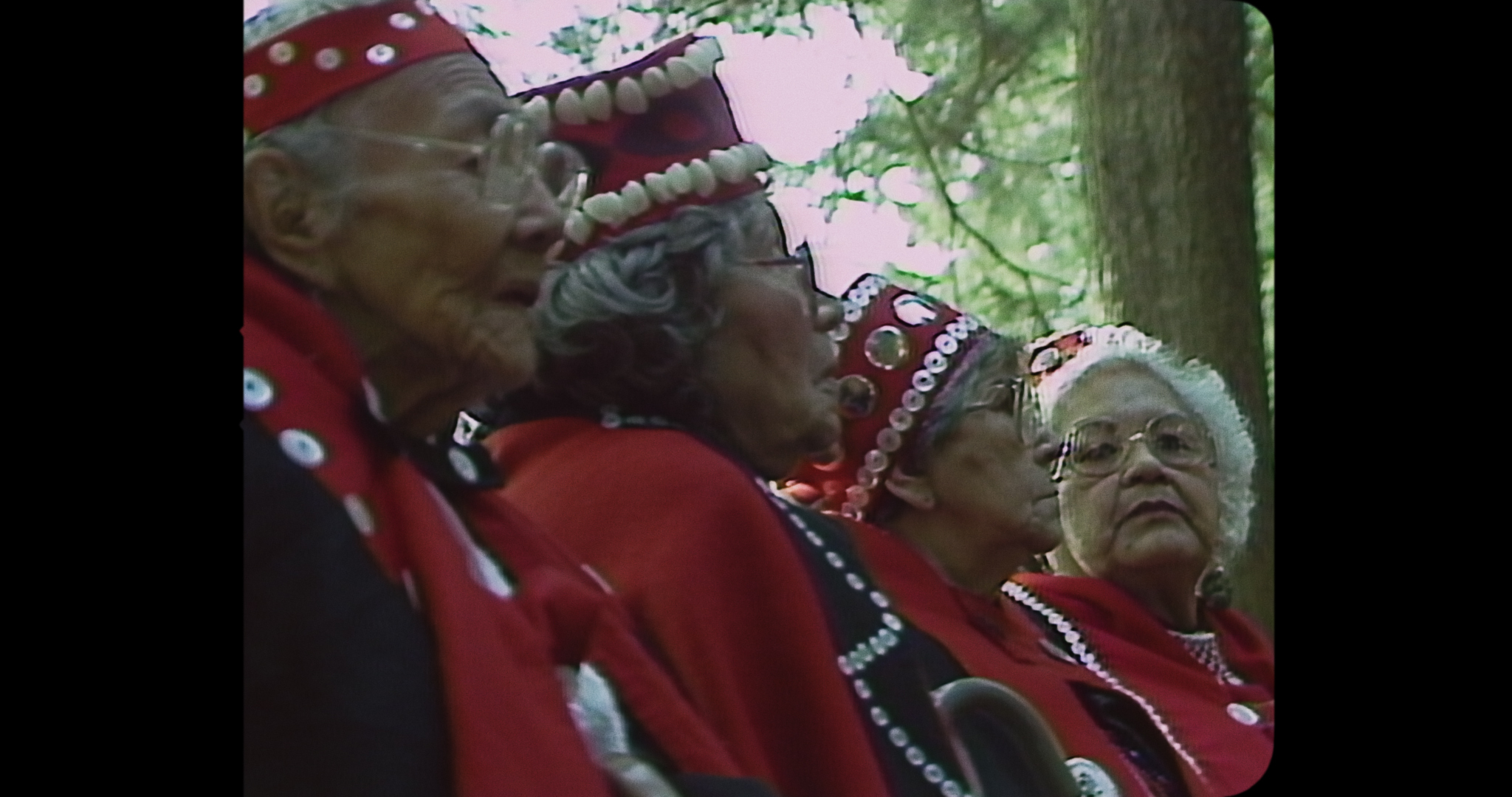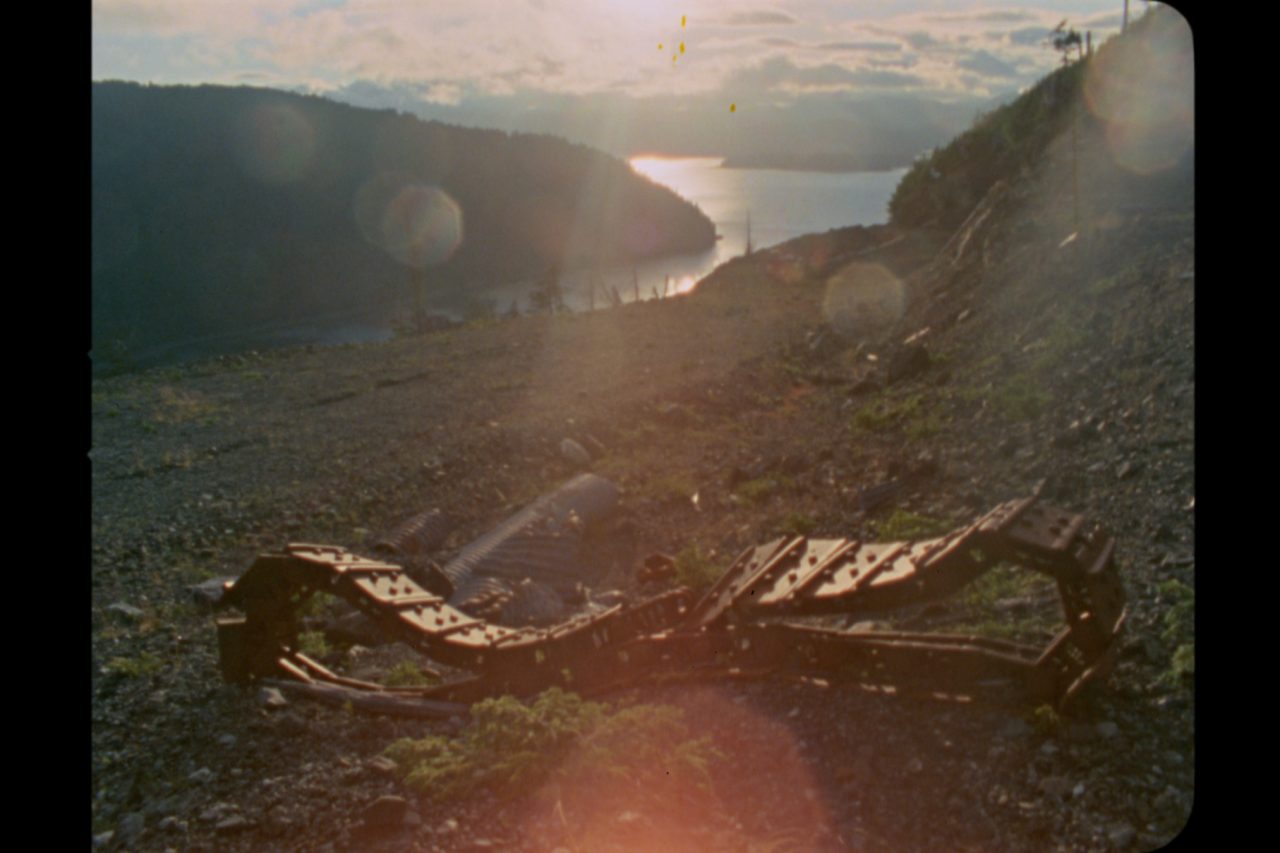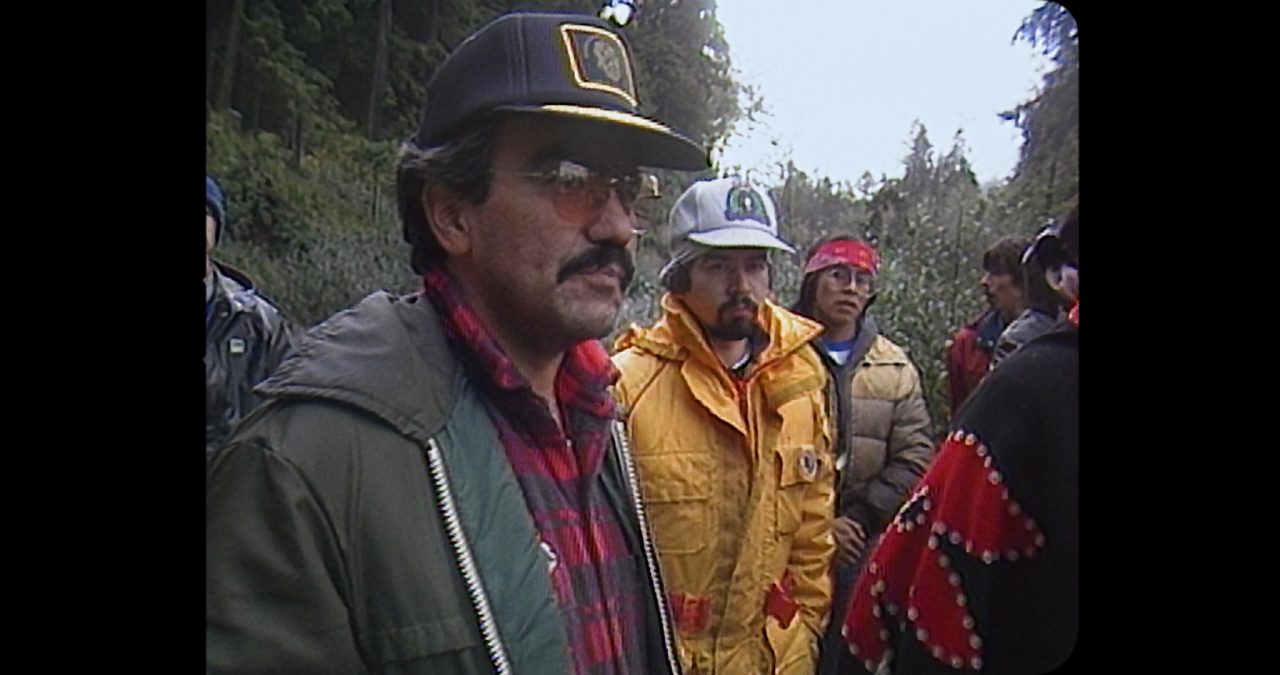Christopher Auchter Documentary Explores Transformative 1985 Haida Blockade on Athlii Gwaii

Haida Elders in archival footage as seen in Christopher Auchter's The Stand. (Image courtesy National Film Board of Canada)
Posted on | Updated
Through archival footage and audio, The Stand explores a peaceful demonstration in Haida Gwaii, which would help pave the way for landmark Aboriginal title decisions.
A new documentary by award-winning filmmaker Christopher Auchter (BMA 2002) recounts the 1985 blockade staged by a small group of Haida people on Athlii Gwaii (known as Lyell Island in English) to protest clear-cutting that had ravaged old-growth forests and destroyed salmon habitats.
Now available for free streaming via the National Film Board of Canada (NFB) website, The Stand tells the story of a peaceful demonstration which would ultimately help pave the way for the establishment of Gwaii Haanas park, as well as recent provincial and federal recognition of Haida Aboriginal title over Haida Gwaii.
“With forceful tactics, the Haida understood that they would garner little support from the Canadian public, and they knew they needed the public on their side to help persuade the British Columbia and Canadian governments to work with the Haida Nation toward a favourable outcome,” Christopher says in a Q&A with the NFB.
“It was an incredibly well-planned event, but adhering to the non-violent plan took courage from everyone involved, as human nature tends toward yelling and force when confronted with disagreements. When moments of buckling took hold, guidance from the Elders and peers was needed to steady the line.”

Vestiges of the logging industry on Athlii Gwaii (Lyell Island), then part of what was known as the Queen Charlotte Islands. (Image from The Stand / courtesy the National Film Board of Canada)
Drawing on more than 100 hours of archival audio and video, The Stand reveals a “complex battle [playing] out on remote logging roads, in the legal system and in the court of public opinion, [while] authorities staged a steady propaganda campaign, alongside stalling tactics and a police presence, to undermine the Haida cause.”
The Stand has been shown at film festivals internationally, and in 2024 won the Northern Lights program Audience Award at the Vancouver International Film Festival.
An animated character named Mouse Woman acts as storyteller as well as a representation of the “Supernatural Beings” Christopher imagines standing alongside the Haida as they fought for their land and culture.
Christopher, who is also an animator, says these beings “live in the landscape; every creek, every point that stretches out into the ocean has a Being that lives there … The stories and the wisdom they provide are also what the Haida were fighting to protect. It was our culture at stake, and Mouse Woman is an example of that.”
Christopher, who is himself Haida, notes that aside from better understanding his Nation’s history, the film provided a chance to explore his personal history. Both his late aunt Shelly Hageman and uncle Michael Nicoll Yahgulanaas took part in the Lyell Island blockade, though Christopher was too young to remember.
“Making this film allowed me to honour them both and get a glimpse of what they experienced,” he says.

A committed group of Haida and their supporters take a stand, demanding a stop to clear-cut logging practices on Athlii Gwaii (Lyell Island), then part of what was known as the Queen Charlotte Islands. (Image from The Stand / courtesy of the National Film Board of Canada)
Despite the story’s high stakes, the film refuses to stereotype its primary characters, regardless of their allegiance. Each is revealed in their fullest humanity — a fullness which Christopher says even he did not foresee.
“I was surprised by the amount of open dialogue and mutual respect between the RCMP and the Haida,” he says. “The communication between the two parties was incredible. They even sat down to have coffee together, laughing and smiling as they traded stories and discussed any updates each was hearing from the government and courts over the dispute at hand. I’d be hard-pressed to find an example like this today.”
The Stand is a National Film Board production. Watch The Stand now in its entirety via the NFB and via the Knowledge Network.